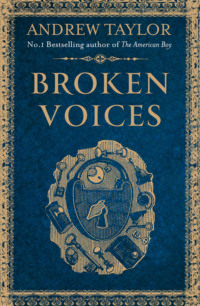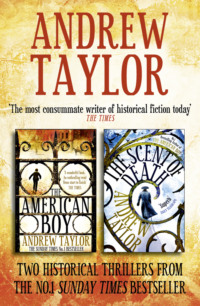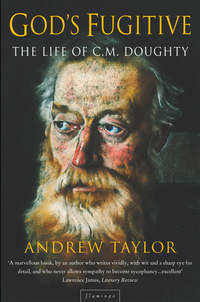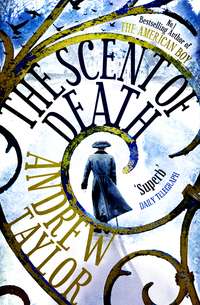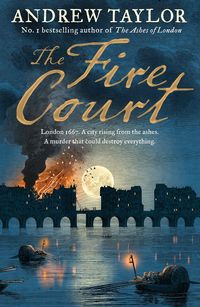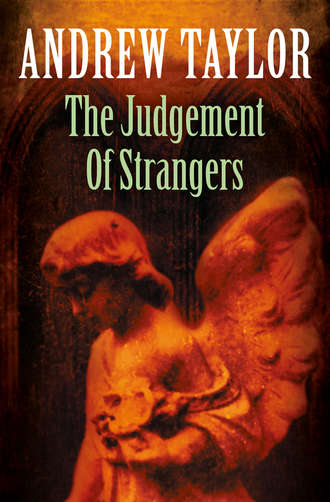
Полная версия
The Judgement of Strangers

ANDREW TAYLOR
THE JUDGEMENT OF STRANGERS

DEDICATION
For Val and Bill
EPIGRAPH
‘Cursed is he that perverteth the judgement of the stranger, the fatherless, and widow.’
from the Service of Commination, in the office
for Ash Wednesday in The Book of Common Prayer.
‘The Manor of Roth is not mentioned in the Domesday Book …’
Audrey Oliphant, The History of Roth
(Richmond, privately printed 1969), p. 1.
Then darkness descended; and whispers defiled The judgement of stranger, and widow, and child …
.....
With flames to the flesh, with brands to the burning, As incense to heav’n the soul is returning
from ‘The Judgement of Strangers’ by the Reverend
Francis St. J. Youlgreave in The Four Last Things
(Gasset & Lode, London, 1896)
CONTENTS
Cover
Title Page
Dedication
Epigraph
Map
1
2
3
4
5
6
7
8
9
10
11
12
13
14
15
16
17
18
19
20
21
22
23
24
25
26
27
28
29
30
31
32
33
34
35
36
37
Epilogue
About the Author
Author’s Note
Praise
By the Same Author
Copyright
About the Publisher
MAP
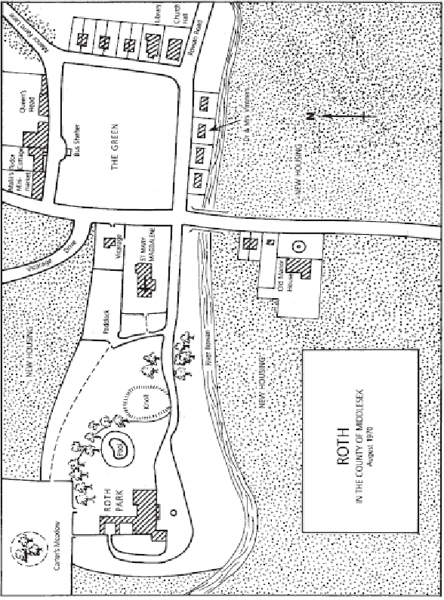
1
We found the mutilated corpse of Lord Peter in the early evening of Thursday the 13th August, 1970. He was the first victim of a train of events which began towards the end of the previous summer when I met Vanessa Forde – or even before that, with Audrey Oliphant and The History of Roth.
Every parish has its Audrey Oliphant – often several of them; their lives revolve around the parish church, and in one sense the Church of England revolves around them. It was inevitable that she should be a regular visitor at the Vicarage, and it shamed me that I did not always welcome her as warmly as I should have done. It also irritated me that the Tudor Cottage cat treated the Vicarage as his second home, braving the traffic on the main road to get there.
‘Miss Oliphant practically lives here,’ said my daughter Rosemary at the end of one particularly lengthy visit. ‘And if she doesn’t come herself she sends her cat instead.’
‘She does an awful lot for us,’ I pointed out. ‘And for the parish.’
‘Dear Father. You try and find the best in everyone, don’t you?’ Rosemary looked up at me and smiled. ‘I just wish she would leave us alone. It’s much nicer when it’s just the two of us.’
Audrey was in her late forties and unmarried. She had lived in Roth all her life. Her house, Tudor Cottage, was on the green – on the north side between Malik’s Minimarket and the Queen’s Head. Its front garden, the size of a large bedspread, was protected from the pavement by a row of iron railings. Beside the gate there was a notice, freshly painted each year:
YE OLDE TUDOR TEA ROOM
(Est. 1931)
PROPRIETOR: MISS A.M. OLIPHANT
Telephone: Roth 6269
Morning Coffee – Light Meals – Cream Teas
Parties By Appointment
I had known the place for ten years, and in that time trade, though never brisk, had steadily diminished. This gave Audrey ample opportunity to read enormous quantities of detective novels and to throw herself into the affairs of the parish.
One evening in the spring of 1969, she appeared without warning on my doorstep.
‘I’ve just had the most wonderful idea.’
‘Really?’
‘I’m not interrupting anything, am I?’ she asked, initiating a ritual exchange of courtesies, a secular versicle and response.
‘Not at all.’
‘Are you sure?’
‘Nothing that can’t wait.’ I owed her this polite fiction. ‘I was about to have a break.’
I took her into the sitting room and, making a virtue from necessity, offered sherry. Audrey was a small woman, rather plump, with a face whose features seemed squashed; it was as though her skull, while still malleable, had been compressed in a vice – thus the face would have been splendidly in proportion if the eyes and the cheekbones and the corners of the mouth had not been quite so close together.
She took a sip of sherry, allowing the wine to linger in her mouth before she swallowed it. ‘I was in the library this afternoon and some schoolchildren came in to ask Mrs Finch if she had any books on local history. And it turns out that there’s a certain amount on neighbouring towns and villages. But very little on Roth itself.’
She paused for another sip. I lit a cigarette, guessing what was coming.
‘Then it came to me in a flash.’ Her heavy jowls quivered with excitement. ‘Why not write a history of Roth? I’m sure lots of people would like to read one. And nowadays so many people are living here who have no idea what the real Roth is like.’
‘What an interesting idea. You must let me know if there is anything I can do. The parish records, perhaps? I wonder if Lady Youlgreave might have some useful material. She –’
‘I’m so glad,’ Audrey interrupted. ‘I hoped you’d want to help. Actually, a collaboration was what I had in mind. It seemed to me that we would be ideally suited.’
‘I wouldn’t say –’
‘Besides,’ she rushed on, ‘the history of the village can’t be separated from the history of the church and the parish. We could even have a chapter on famous inhabitants of the past. Francis Youlgreave, for example. What do you think?’
‘I’m not sure how much use I’d be. After all, you’re the one with the local knowledge. Then there’s the question of time …’
I watched the excitement draining from Audrey’s face like water from a bath. I felt ashamed of myself and also irritated with her. Why did she insist on calling Roth a village? It was a suburb of London, similar in all essentials to a dozen others. Most of its inhabitants had their real lives elsewhere. In Roth they merely serviced their bodily needs, watched television and on Sundays played golf or cleaned their Ford Cortinas.
‘I quite understand.’ Audrey stared at her empty glass. ‘Just an idea.’
‘I wonder,’ I went on, trying to lessen the guilt that crept over me, ‘would it be a help if I were to glance through your first draft?’
She looked up, her face glowing. ‘Yes, please.’
The decision was made. If Audrey had not decided to write her history of Roth, none of what followed might have happened. It is tempting to blame her – to blame anyone but myself. But fate has a way of finding its agents: if Audrey had not volunteered to be the handmaid of Providence, then someone else would have come forward.
Audrey completed her little book early in August 1969. In a flutter of excitement, she brought me the manuscript, which was written almost illegibly in pencil. It was mercifully short, largely because Roth had relatively little history. Since the Middle Ages, the parish had been overshadowed by its larger neighbours. It was too far from the Thames, and later too far from the railway.
Still, to judge from the old photographs which Audrey had found, Roth had been a pretty place, and remarkably unspoilt, despite the fact that it was only thirteen miles from Charing Cross. All that had changed in the 1930s, when the Jubilee Reservoir was built: seven hundred acres of the parish, including the northern part of the village itself, were drowned beneath seven billion gallons of water, sacrificed to assuage the endless thirst of the inhabitants of London.
I soon discovered that Audrey’s spelling and grammar were shaky. The text consisted of a patchwork of speculations – Who knows? Perhaps Henry VIII stayed at the Old Manor House on his way to Hampton Court – and quotations lifted, often inaccurately, from books she had found in the library. I persuaded her to have the manuscript typed, and managed – diplomatically, I hoped – to arrange for the typist quietly to incorporate some of my corrections. I then went through the typed draft with Audrey and revised it once more. By now it was early September.
‘We must find a publisher,’ Audrey said.
‘Perhaps you could have it privately printed?’
‘But I am sure it would interest readers all over the country,’ she said. ‘In many ways the story of Roth is the story of England.’
‘In a sense, yes, but –’
‘And, David,’ she interrupted. ‘I want all the royalties to go to the restoration fund. Every last penny. So we must find a proper publisher who will pay us lots of money. Why don’t you come to supper tomorrow and we’ll discuss it? I’d like to cook you a meal to say thank you for all the work you’ve done.’ She tapped me playfully on the arm. ‘You look as if you need a good feed.’
‘Unfortunately I can’t manage tomorrow. The Trasks have asked me to dinner. Some other time, perhaps.’
‘Some other time,’ she echoed.
I was relieved that the Trasks had given me such an impregnable excuse. As a consequence of my accepting their invitation, two people died, a third went to prison, and a fourth was admitted to a hospital for the insane.
2
The Trasks lived in a rambling Victorian rectory cheek by jowl with a rambling Victorian church. I knew from past visits that both the church and the house were warm and welcoming. Ronald did a very good job. His congregations were considerably larger than average.
I parked on the gravelled forecourt in front of the house. Two other cars were already there: an Austin Cambridge and a dark-green Daimler. The front door opened before I had reached it. Ronald beamed at me. I was wearing my clerical suit and a dog collar, but he was in mufti – rather a good dark suit, which made him look slimmer than he was, and a striped tie. He was shorter than me but much broader, and he gave the impression of never walking when he could trot. This evening, everything about him sparkled, from his black shoes to his fair hair. Aftershave wafted out to meet me.
‘David!’ He clapped me on the shoulder and drew me into the house. ‘Good to see you. Come and meet the others.’
The hall was full of flowers and smelled strongly of polish. Ronald led me into the drawing room, which was at the back of the house. It was a warm evening. The French windows were open and a knot of people was standing on the terrace beyond.
Cynthia Trask came forward to greet me. She was square and trim, like her brother, and she wore a severe blue dress like a uniform. While Ronald fetched me a glass of sherry, she steered me towards the other guests.
I knew one of the couples – Victor and Mary Thurston. Thurston had made a great deal of money selling cabin cruisers for use on the river, and now he and his wife ‘served the community’ as they liked to put it, which meant sitting on a variety of committees; she preferred philanthropic causes and he concentrated on political ones. Thurston was a councillor and, now he was on the Planning Committee, wielded considerable power.
I had not met the other couple before – they turned out to be the headmaster of one of the local grammar schools and his wife; she was one of Ronald’s churchwardens.
The first thing I noticed about the fifth guest was her hair, which was curly and the colour of glossy chestnuts. As she turned towards me, the evening sun swung behind her, giving her head a nimbus of flame. She was wearing a long dress of thin cotton, with full sleeves and a ruffled neck. For an instant, the setting sun made her dress almost transparent. Her body darkened. I saw the inside of her legs up to her crotch. The dress might as well have been invisible.
‘Here we are, David.’ Ronald was at my elbow with a glass of sherry. ‘Vanessa, I don’t think you know David Byfield. David, this is Vanessa Forde.’
We shook hands. I was momentarily unnerved by the sudden lust I felt. This was a familiar problem. Over the years I had learned to ride the feeling as a surfer rides a wave, until its force diminished. One way to avoid wallowing in sensation was to concentrate on observation. In a few seconds I had noticed that Vanessa had a pleasant face, attractive rather than beautiful, with a high colour and curving nose.
‘Let me get you another drink.’ Ronald snatched the empty glass from Vanessa’s hand. ‘Gin and lemon?’
She nodded, smiling. Ronald darted towards the drinks trolley, which was just inside the drawing room. There was something very boyish about him that evening. At times I glimpsed the adolescent he must once have been; and if I am honest, I should add that I preferred what I glimpsed to the senior churchman he had now become.
I offered Vanessa a cigarette. She accepted, bending forward to receive a light. I saw that she wore a wedding ring. For an instant, I smelt her perfume. It reminded me of one my wife used to wear. We spoke simultaneously, diving into the conversation like swimmers at the start of a race.
‘Do you live locally?’
‘Do you have a parish –?’
We smiled at each other and any awkwardness dissolved.
‘After you, Mrs Forde.’
‘Vanessa, please. To answer your question, I live in Richmond.’
I noticed that she had said I rather than we. ‘And to answer yours, I’m the vicar of Roth.’
‘Oh yes.’
‘Do you know Roth, then?’
‘A little.’ She stared up at me and smiled. ‘Does that surprise you?’
I smiled back. ‘Its identity tends to get swamped by its neighbours. A lot of people think the name is familiar but have no idea where it is.’
‘I went there a few years ago to see the church. Rather an interesting one. You’ve got that medieval panel painting over the chancel, haven’t you? The Last Judgement?’
‘That’s right. With scenes from the life of Christ underneath.’
‘One gin and lemon coming up,’ said Ronald, materializing at Vanessa’s elbow and handing her the glass with a flourish. He had a similar glass in his own hand, which he raised. ‘Chin-chin.’ He beamed at me. ‘David, I know Cynthia wanted to have a word with you about Rosemary.’
‘My daughter,’ I explained to Vanessa.
‘Our niece dropped in last week,’ Ronald went on. ‘She left school at the end of last term and she brought over a trunk of stuff for us to dispose of. Clothes, I suppose. I think there’s a lacrosse stick, too. Cynthia wondered if anything might come in useful for Rosemary.’
I smiled and thanked him. There was a time when I would have objected to being on the receiving end of the Trasks’ philanthropy. Now I knew better. Pride is a luxury and children become increasingly expensive as they grow older. At this moment Cynthia reached us, bearing bowls of peanuts and olives.
‘Did I hear Rosemary’s name?’ she asked. ‘Such a delightful girl. How’s she liking school now?’
‘Much better, I think.’ I turned to Vanessa. ‘When Rosemary first went away, she disliked it very much.’ In fact, she had twice tried to run away. ‘But she seems to have settled down in the last year.’
‘She will be taking her A levels next summer,’ said Cynthia, with a hint of interrogation in her voice, indicating that this was an inspired guess rather than a statement of fact.
She detached me from Vanessa and Ronald and talked to me for a moment or two about Rosemary. We decided – or rather Cynthia decided – that she would send Ronald over with the trunk during the next week or so. Anything we did not want for Rosemary could go to our next jumble sale. Having settled the matter, she steered me away from Vanessa and Ronald, who were talking together at the far end of the terrace, and skilfully inserted me into a conversation between Victor Thurston and the headmaster’s wife.
I did not get another opportunity to talk to Vanessa for some time. While we were on the terrace I glanced once or twice in the direction of her and Ronald, still talking, their faces intent. At one point I noticed her shaking her head.
Eventually we went through to the dining room, and Cynthia steered us to our places at the round table. Vanessa was diametrically opposite me. There was a substantial flower arrangement in the middle of the table, so I caught only the occasional glimpse of her. I was sitting between Cynthia and the headmaster’s wife.
Ronald said grace. The meal which followed was uncharacteristically elaborate. Melon with Parma ham gave way to coq au vin. Ronald, usually the most careful of hosts, kept refilling our glasses with an unfortunate Portuguese rosé. The headmaster’s wife tried delicately to interrogate me about Ronald. It soon became clear that she knew the Trasks rather better than I did. At last she gave up and spoke across me to Cynthia.
‘My dear, this is wonderful. How on earth do you manage to prepare a meal like this and go out to work?’
‘I only work in the mornings. I find there’s ample time if one is sufficiently organized.’
‘I didn’t know you had a job,’ I said.
‘I work for Vanessa. I’m her secretary, really. Jolly interesting.’
I wondered whether that explained the special effort the Trasks were making. Was Cynthia hoping for promotion?
‘I suppose you spend most of your time dealing with authors and so on,’ said the headmaster’s wife. ‘It must be marvellous. Do you have lots of bestsellers?’
Cynthia shook her head. ‘We tend to do fairly specialized non-fiction titles. Actually, I think Royston and Forde’s out-and-out bestseller was something called Great Engines of the 1920s.’
Ronald and Thurston talked to Vanessa for much of the meal. When we left the table, Mary Thurston seized her husband’s arm as if to re-establish her claim to him. Ronald went to the kitchen to make coffee.
‘Ronald bought a machine when he was in Italy last year,’ Cynthia explained to the rest of us. ‘He does like to use it when we have guests. Too complicated for me, I’m afraid.’ She added as an afterthought, ‘Super coffee.’
We went back to the drawing room to wait for it. Vanessa came over to me.
‘I don’t suppose you could give me another cigarette, could you? I’ve mislaid mine. So silly.’ She smiled up at me. Even then I think I knew that Vanessa was never silly. She was many things, but not that. She sat down on the sofa and waved to me to join her.
‘Are you in Ronald’s – whatever it is? – area?’
‘He’s my archdeacon, yes. So in a sense he’s my immediate boss.’
I did not want to talk about Ronald. He and I did not get on badly – not then – but we had little in common, and both of us knew it.
‘Cynthia tells me you’re a publisher.’
She squeezed her eyes together for an instant, as though smoke had irritated them. ‘By default.’
‘I’m sorry?’
‘It was my husband’s firm.’ She stared down at her cigarette. ‘He founded it with a friend from Oxford. It never made much money for either of them, but he loved it.’
‘I didn’t realize. I’m sorry.’
‘I – I assumed Ronald might have mentioned it to you. No reason why you should know. Charles died three years ago. A brain tumour. One of those ghastly things that come out of a clear blue sky. I’ve taken over his part in the business. Needs must, really. I needed a job.’
‘Do you enjoy it?’
She nodded. ‘I’d always helped Charles on the editorial side. Now I’m learning a great deal about production.’ She smiled towards Cynthia, who was embroiled with the headmaster’s wife. ‘Cynthia keeps me in order.’
‘At dinner Cynthia said she thought Great Engines of the 1920s was your bestselling book.’
‘She’s perfectly right. Though I have my hopes of The English Cottage Garden. It’s been selling very steadily since it came out last year.’ She drew on her cigarette. ‘In fact, our real bestseller in terms of copies sold is probably one of our town guides. The Oxford one. We do quite a lot of that sort of thing – that’s where the bread and butter comes from.’
At that moment, Ronald appeared in the doorway bearing a large silver tray. ‘Coffee, everybody,’ he announced in a voice like a fanfare. ‘Sorry to keep you waiting.’ He advanced into the room, his eyes searching for Vanessa.
‘One of my parishioners has written a book,’ I said to her.
Vanessa looked warily at me. ‘What sort of book?’
‘It’s a history of the parish. Not really a book. I’d say it’s about ten thousand words.’
‘How interesting.’
She glanced at me again, and I think a spark of shared amusement passed between us. She knew how to say one thing and mean another.
‘She’s looking for a publisher.’
‘Sugar, Vanessa?’ boomed Ronald. ‘Cream?’
‘In my experience, most authors are.’ She smiled up at Ronald. ‘Just a dash of cream, please, Ronnie.’
Ronnie?
‘She believes it might appeal to readers all over the country,’ I continued. ‘Not just to those who know Roth.’
‘The happy few?’
I smiled. It was a novelty to have someone talk to me as a person rather than as a priest. ‘Could you recommend a publisher she could send it to?’ I stared at the curve of her arm and noticed the almost invisible golden hairs that grew on the skin. ‘Someone who would have a look at the book and give a professional opinion. I imagine you haven’t got the time to look at stray typescripts yourself.’
‘Vanessa’s always looking at stray typescripts,’ Ronald said, and laughed. ‘Or looking for them.’
‘I might be able to spare five minutes,’ she said to me, her voice deadpan.
Once again, she glanced at me, and once again the spark of amusement danced between us.
‘Brandy, anyone?’ Ronald enquired. ‘Or what about a liqueur?’
For the rest of the evening Vanessa talked mainly to Ronald, Cynthia and Victor Thurston. I was the first to leave.
3
The following Monday, I looked up Royston and Forde in the directory and phoned Vanessa at her office. Cynthia Trask answered the phone. Oddly enough this took me by surprise. I had completely forgotten that she worked there.
‘Good morning, Cynthia. This is David Byfield.’
‘Hello, David.’
After a short pause I said, ‘Thank you so much for Friday.’
‘Not at all. Ronald and I enjoyed it.’
I wondered if I should have sent flowers or something. ‘I don’t know if Vanessa mentioned it, but one of my parishioners has written a book. She volunteered to have a look at it.’
‘I’ll see if she’s engaged,’ Cynthia said.
A moment later, Vanessa came on the line. She was brisk with me, her voice sounding much sharper on the telephone. She was busy most of the day, she was afraid, but might I be free for lunch? Ninety minutes later, we were sitting opposite each other in a café near Richmond Bridge.
The long, clinging dress she had worn at the Trasks’ on Friday had given her a voluptuous appearance. Now she was another woman, dressed in a dark suit, and with her hair pulled back: slimmer, sharper and harder.
The typescript of The History of Roth was in a large, brown envelope on the table between us. I had picked it up from Audrey on my way to Richmond. (‘So kind of you, David. I’m so grateful.’)
Vanessa did not touch the envelope. She picked at her sandwich. A silence lay between us, and as it grew longer I felt increasingly desolate. The friendly intimacy that had flourished so briefly between us on Friday evening was gone. I found it all too easy, on the other hand, to think of her as a desirable woman. I had been a fool to come here. I was wasting her time and mine. I should have sent the typescript in the post.


